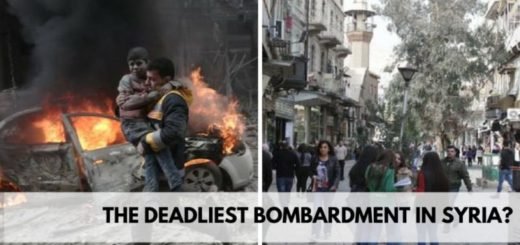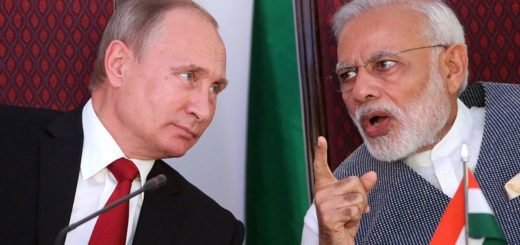Diamonds, Mugabe, and the Crocodile: A coup that happened in Zimbabwe
Mnangagwa and his faction have control over the highly productive farms, mining, diamond businesses and access to foreign reserves. But to maintain themselves in power, they needed the control of ZANU-PF to win the scheduled 2018 elections. The coup was seen widely as a step to purge ZANU-PF and remove the officials loyal to Mugabe. In other words, to set the road clear for Emmerson Mnangagwa to ascend the presidency. -Shiva Shankar Pandian*
“A convoy of armoured vehicles, soldiers roaring and marching the streets with heavy weapons, loud explosions echoing various parts of the city, the country’s president under house arrest, the military general on television screens uttering words like “nation is safe”, “secure” and “restoring stability”. It looked like a coup scene in any Hollywood movie. But, this happened in Zimbabwe, a poverty-stricken African country in mid-November this year. While speaking of Coups, figures show us that nearly 36% of all worldwide military coup attempts since 1950 have occurred in Africa. Coups happen for various reasons, some may succeed, some fail. Mostly coups are done for liberating the country and building a stable economy for the suffering people. But the result is contested, as the plight of the people had never changed in reality. For instance, Coups in Niger (2010), Burkina Faso (2014) and Burundi (2015) were attempts by their leaders to extend their term limits and their power over their polity. While coups that happened in Togo (2005) and in Guinea (2008) were staged over the question of succession. This present coup we witnessed in Zimbabwe appears to be of the latter kind.”
On the dusk of 14th November, soldiers of the Zimbabwe Defense Forces (ZDF) flocked their heavily armed tanks into the capital city, Harare. In few hours, they blocked access to government buildings and took control of Zimbabwe Broadcasting Corporation. Troops invaded the presidential palace and took the 93-year old Robert Mugabe, who ruled the country for nearly 37 years under custody.
“It is not a military takeover of government,” a ZDF spokesperson said in a television screening. “We are only targeting criminals around him who are committing crimes that are causing social and economic suffering in the country in order to bring them to justice. As soon as we have accomplished our mission we expect that the situation will return to normalcy.”
Several key ministers and government officials were detained including local government minister Saviour Kasukuwere and finance minister Ignatius Chombo, and president’s nephew Patrick Zhuwayo. It was a crucial arrest as all three are part of the G40 faction of ZANU-PF (political party) which has its loyalty pledged to Grace Mugabe, the first lady of Zimbabwe, who was believed by her supporters to be the successor to Mugabe, whose health and power is waning.
Until being fired and fleeing the country, it was the vice-president and Mugabe’s protégé Emmerson Mnangagwa who was whispered to take the leadership.
The entire Coup happened as a part of internal strife among the ruling party over the question “Who is going to succeed after Mugabe steps down or dies?”

President Mugabe chats with ZDF Commander General Constantino Chiwenga at State House 16 November 2017 | Image: capitalfm.co.ke
Robert Mugabe and his Zimbabwe
Robert Mugabe, who literally holds seven university degrees, was once praised as a war hero after waging a bloody guerrilla battle against the British colonialists, who imprisoned him for a decade.
As soon as he was released from the prison he kick-started a seismic shift in the then Rhodesian politics, he successfully fueled the popular outrage against the white establishment.
He fought in the country’s significant Rhodesia’s war of independence and eventually became the prime minister in 1980 of the independent country born from the ashes of the war. This new country was renamed to what we know as “Zimbabwe” and a few years later he assumed its Presidency with a new constitution.
Ever since he took the presidency, he had won several controversial elections which were widely accused to be rigged. He brought the politics of Zimbabwe under his clutches using threats and aggression, human rights activists’ counts that nearly 200 were dead during the 2008 elections and there were also reports of state-sponsored and politically motivated torture and killings.
But like any alleged dictator, he had his own loyal hands, who believed that their leader Mugabe speaks for the downtrodden and the deprived. Not including his critics who vehemently disapprove him for his authoritarian style of leadership and corruption.
One thing for sure, on which his critics speak a lot and his loyalists go silent is that his rule has so far created an undeniable economic crisis coupled with rampant corruption in Zimbabwe, once known for its riches among Africa.
Question over succession
As Mugabe is growing old and getting bad shape in terms of health, there is a need for a political successor. This caused a split in Mugabe’s own political party ZANU-PF. One faction, the “Old Guard” led by Mugabe’s VP Emmerson Mnangagwa, who fought the Independence war by the side of Mugabe. Mnangagwa, an old friend, and the VP was a partner in all alleged crimes of Mugabe, he was also widely believed to be Mugabe’s political heir. Soon things went vice-versa when Mugabe’s administration blamed Mnangagwa for his “traits of disloyalty”. He was also accused of plotting against Mugabe and later fled to South Africa. Where he remained till his sworn ceremony as President.
His rival Grace Mugabe, wife of Robert Mugabe, to some extent, reminds us of Marie Antoinette, the Queen of France before the French Revolution. For few similar reasons, both are censured.
Grace Mugabe, nearly 41 years younger than Mugabe is known for her lavish shopping habits and overgenerous charity work. She recently gained popular support among some party cadres and currently leads the women’s wing of ZANU-PF.
Her explicit spendthrift lifestyle has been a source of discomfort among many in Zimbabwe at times when the country is facing severe economic hardships.
Grace Mugabe was likely to succeed her husband before the coup. Even though, she was very unpopular with the ZANU-PF old guard.
Unfortunately for Grace Mugabe, Mnangagwa nicknamed as “the crocodile” commands an overwhelming support among the army including the veterans of the war of independence.
Veterans of the war of independence
This faction is one of the most influential among the army and political ranks.
Mugabe for political reasons kept removing war veterans from their seats of power in ZANU-PF in recent years and filling those vacancies with officials who never fought in the war added fuel to the fire.
As a result, affairs between Mugabe and these influential veterans got tainted and some among them vowed to form an opposition front to oust Mugabe. This coincided with Mnangagwa’s removal. So instead of supporting Grace Mugabe many in this faction supported her rival.
Prior to the Coup, some elite officials of the army came to the public, saying that they will never allow someone who did not fight in the war to rule the country after Mugabe, which clearly was a setback to Grace Mugabe.
Tensions started to surface in the politics of Zimbabwe since Mnangagwa fled to South Africa. His removal was seen as a part of the succession battle between Mnangagwa and Grace Mugabe.
Mnangagwa and his faction have control over the highly productive farms, mining, diamond businesses and access to foreign reserves. But to maintain themselves in power, they needed the control of ZANU-PF to win the scheduled 2018 elections. The coup was seen widely as a step to purge ZANU-PF and remove the officials loyal to Mugabe. In other words, to set the road clear for Emmerson Mnangagwa to ascend the presidency.
Post-coup: ‘Crocodile’ Emmerson Mnangagwa rising to power
After a series of events, on November 19, Mugabe was sacked by his party along with his wife and her 20 loyal associates, they were completely expelled from the party memberships. And Mnangagwa was appointed in Mugabe’s place.
However, in a speech delivered in Harare, Mugabe ignored the party’s actions, declining to resign and saying he would preside over the upcoming party conference. But for Mugabe the situation was not in favour, in response, ZANU-PF introduced an impeachment resolution on 21st November. Mugabe’s impeachment and removal appeared all but certain.
Hours after the impeachment debate began, the Speaker of the House of Assembly read a letter from Mugabe announcing that he had resigned, effective immediately. Thereby ended the political career of Robert Mugabe.
Emmerson Mnangagwa gave his speech to the public at the ZANU-PF HQ, pledging “the beginning of a new unfolding democracy”. Soon the Zimbabwe Broadcasting Corporation published a release that Mnangagwa would be sworn on 24th November as interim president to serve out the remainder of Mugabe’s term in office. Mnangagwa was sworn in as the third President of Zimbabwe on 24 November 2017.
The Chinese connection to the coup
China’s connection with Zimbabwe stretches back to the 1970s when China covertly provided arms and finance to Mugabe’s guerrilla army during the war of independence. In the following years, China has continued to aid financial and political support to Zimbabwe, investing extensively and helping to develop key infrastructure projects.
Mnangagwa personally enjoys a good rapport with China. He was trained there during the independence war, he sent his son to study in a Chinese university, and he visited Beijing shortly before the coup.
All these events added to speculation that China has a role to play in the coup. Needless to mention the growing Chinese interest in Africa esp. in the sub-Saharan region.
Witnessing China providing loans to foreign countries to influence their policies and economy, this connection may help him fetch loans and investments that Zimbabwe badly needs at a greater cost.
After the coup, an editorial published in the state-run Global Times, which said: “no matter what, the Chinese government was unlikely to back down on its close relationship with Zimbabwe.” “China has played a positive and constructive role in Africa. The long-term friendship between China and Zimbabwe will transcend the internal disturbances in Zimbabwe,” the editorial added.
But many observers say there is no way to know to what extent China was involved the apparent coup.
Zimbabwe still remains one of the most corrupt and inefficiently governed countries in the world, and this coup or whatever happened was to keep Zimbabwe that way. In other words to maintain the status quo.
Will the change in the government and leadership do any good to the plight of the entirely neglected people in all these political crises is a million dollar question? Unlikely will be the fortunate answer.
Whatever happened in Zimbabwe in the recent past is just a transition from a state controlled by one man to a state controlled by one party. As of now, democracy will have to wait.
Read how world reacted to Trump’s decision to move embassy to Jerusalem

*Shiva Shankar Pandian is the Consulting Editor at The Kootneeti, stationed at Chennai. He holds a Masters in International Relations with specializations in U.S. Foreign Policy. His area of interest includes military & Coup.


















